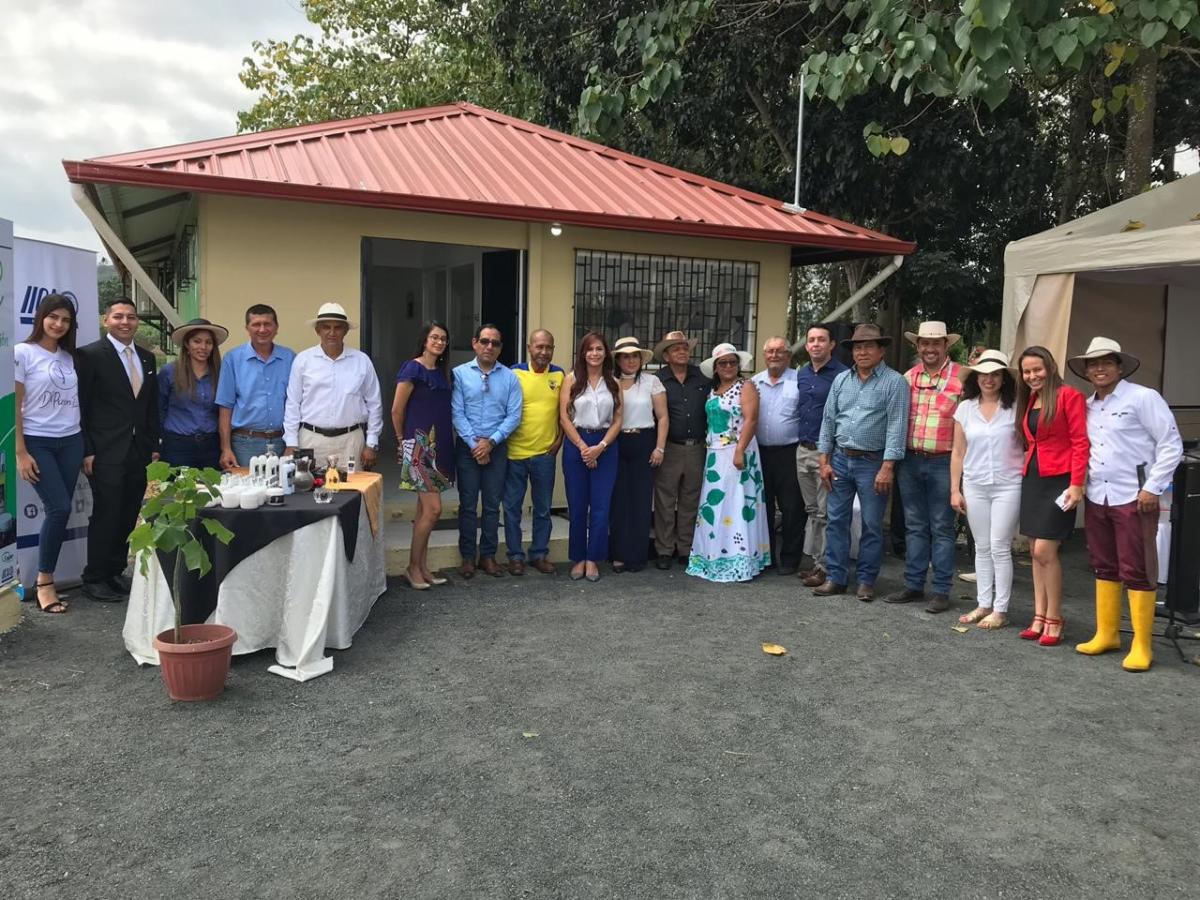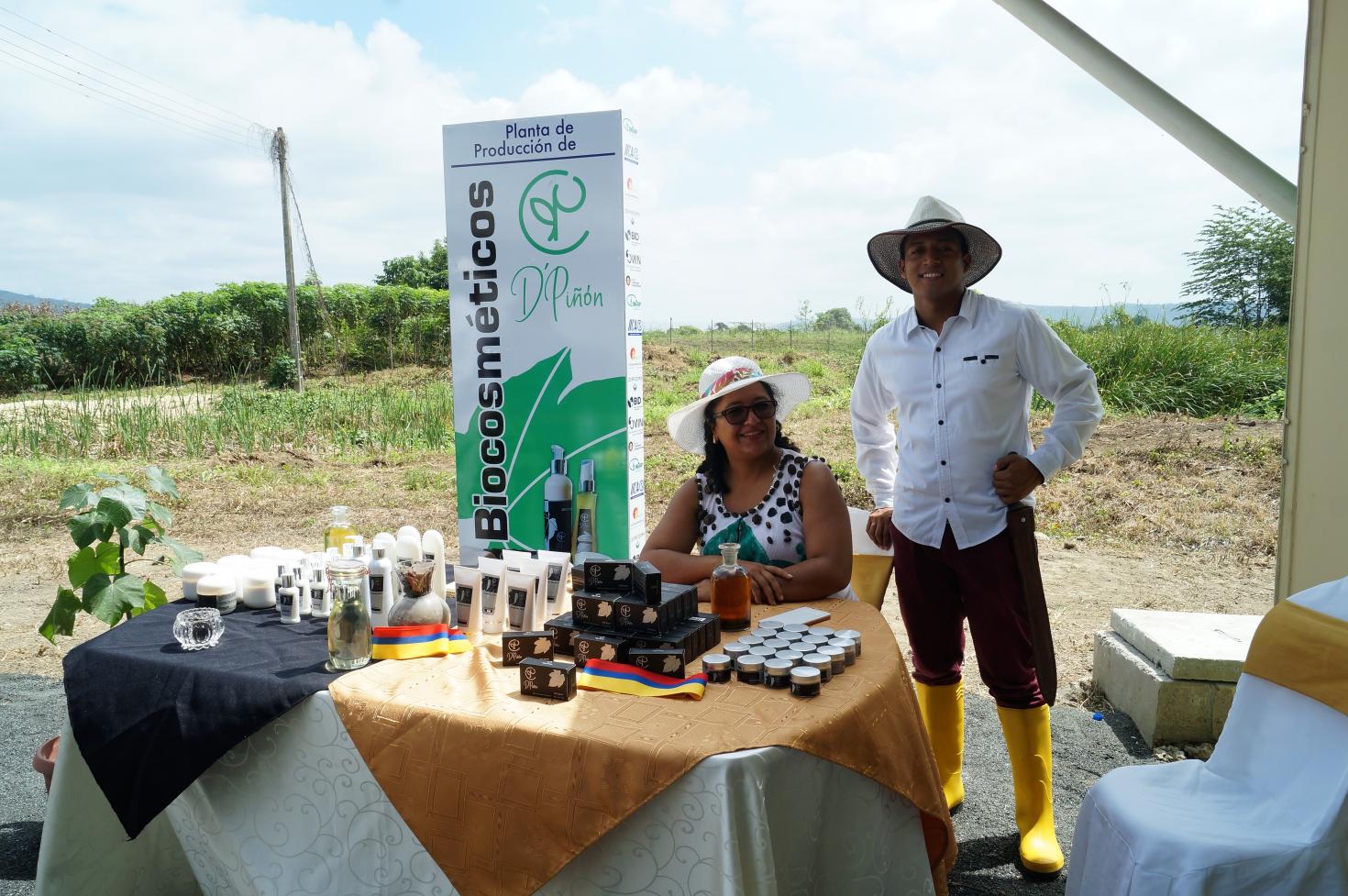A project by IICA and the Ministry of Energy and Non-Renewable Natural Resources of Ecuador allowed for consolidating this business undertaking in the field of bioeconomy, which will be operated by pine-nut producers in the province of Manabí.

Portoviejo, Ecuador, 8 July 2019 (IICA). Based on local knowledge, and through the incorporation of technology and valuable innovations in production processes, a new bio-business is processing pure pine-nut oil by-products to manufacture biocosmetics for commercial sale.
The D’Piñón brand manufactures soap, face creams, and hair products such as shampoo and conditioner, under the highest national and international technical standards.
As part of this initiative, facilitated by the Ministry of Energy and Non-Renewable Natural Resources of Ecuador and the Inter-American Institute for Cooperation on Agriculture (IICA), a production plant has been set up in the in the city of Portoviejo at the Experimental Station of the National Agricultural Research Institute (INIAP) of Ecuador.
The plant, which was recently inaugurated, adds value to pure pine-nut oil by-products, and reduces waste generation to a minimum; this, in turn, lowers its impact on the environment. It is also an example of a bioeconomy and circular economy business model.
IICA has played a key role in solidifying the initiative. The Institute’s financial and direct technical cooperation allowed for developing prototypes for the cosmetics line as well as the graphic line that will be used to market the products.
Margarita Baquero, IICA Specialist in Ecuador, stated that the project has represented quite a challenge given the fact that the pine-nut value chain did not exist.

“The clean production of bio-fuel and the use of all of its by-products demonstrates that it is possible to generate a pollutant-free, responsible and sustainable industry,” remarked Baquero.
Once the project is completed, the plant will be transferred to Manabí’s Cooperative of Producers and Processors of Pine-Nut Living Fences (COOPROCERMA). Through specialized training sessions, the organization has learned how best to operate and manage the bio-business, through which it hopes to drive the economic revitalization of the Ecuadorian province of Manabí.
The bio-business represents the joint effort of more than 3,600 families in Manabí that grow pine-nut on living fences spanning 12,000 kilometers on rural land.
The project has allowed for generating marketing chains for the product, which, in turn, has generated greater income and better livelihoods for the local population.
More information:
Margarita Baquero, Agribusiness and Trade Specialist at the IICA Delegation in Ecuador











